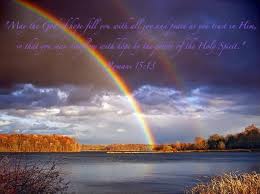A.W. Tozer Chapter Twenty: The Love of God
Excerpts
from Chapter 20:
Opening Prayer
“Our Father which art in heaven, we Thy children
are often troubled in mind, hearing within us at once the affirmations of faith
and the accusations of conscience. We are sure that there is in us nothing that
could attract the love of One as holy and as just as Thou art. Yet Thou hast
declared Thine unchanging love for us in Christ Jesus. If nothing in us can win
Thy love, nothing in the universe can prevent Thee from loving us. Thy love is
uncaused and undeserved. Thou art Thyself the reason for the love wherewith we
are loved. Help us to believe the intensity, the eternity of the love that has
found us. Then love will cast out fear; and our troubled hearts will be at peace,
trusting not in what we are but in what Thou hast declared Thyself to be.
Amen.”
“The apostle John, by the Spirit, wrote, “God is love,” and
some have taken his words to be a definitive statement concerning the essential
nature of God. This is a great error. John was by those words stating a fact, but he was not offering a definition. Equating love with God is a major mistake
which has produced much unsound religious philosophy and has brought forth a
spate of vaporous poetry completely out of accord with the Holy Scriptures and
altogether of another climate from that of historic Christianity.”
“The words “God is love” mean that love is an essential
attribute of God. Love is something true of God but it is not God. It expresses
the way God is in His unitary being, as do the words holiness, justice,
faithfulness and truth. Because God is immutable He always acts like Himself,
and because He is a unity He never suspends one of His attributes in order to
exercise another.”
“We do not know, and we may never know, what love is, but we
can know how it manifests itself, and that is enough for us here. First we see
it showing itself as good will. Love wills the good of all and never wills harm
or evil to any. This explains the words of the apostle John: “There is no fear
in love; but perfect love casteth out fear.” Fear is the painful emotion that
arises at the thought that we may be harmed or made to suffer. This fear
persists while we are subject to the will of someone who does not desire our
well-being. The moment we come under the protection of one of good will, fear
is cast out. A child lost in a crowded store is full of fear because it sees
the strangers around it as enemies. In its mother’s arms a moment later all the
terror subsides. The known good will of the mother casts out fear.”
“Another characteristic of love is that it takes pleasure in
its object. God enjoys His creation. The apostle John says frankly that God’s
purpose in creation was His own pleasure. God is happy in His love for all that
He has made. We cannot miss the feeling of pleasure in God’s delighted
references to His handiwork. Psalm 104 is a divinely inspired nature poem
almost rhapsodic in its happiness, and the delight of God is felt throughout
it.”
“The glory of the Lord shall endure forever: the Lord shall
rejoice in his works.”
“It is of the nature of love that it cannot lie quiescent.
It is active, creative, and benign. “God commendeth his love toward us, in
that, while we were sinners, Christ died for us.” “God so loved the world, that
he gave his only begotten Son.” So it must be where love is; love must ever
give to its own, whatever the cost.”
“In Christian experience there is a highly satisfying love
content that distinguishes it from all other religions and elevates it to
heights far beyond even the purest and noblest philosophy. This love content is
more than a thing; it is God Himself in the midst of His Church singing over
His people. True Christian joy is the heart’s harmonious response to the Lord’s
song of love.”




Amen,,,
ReplyDelete